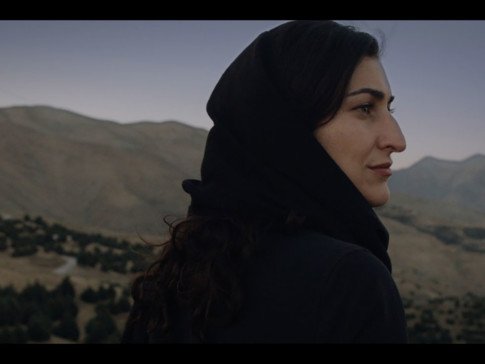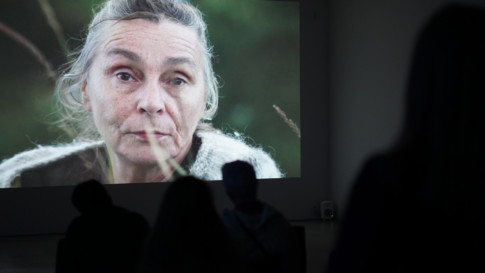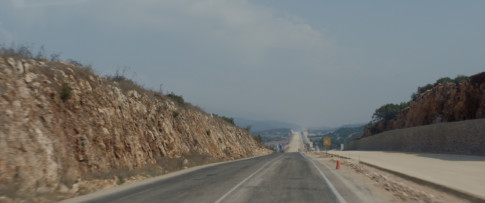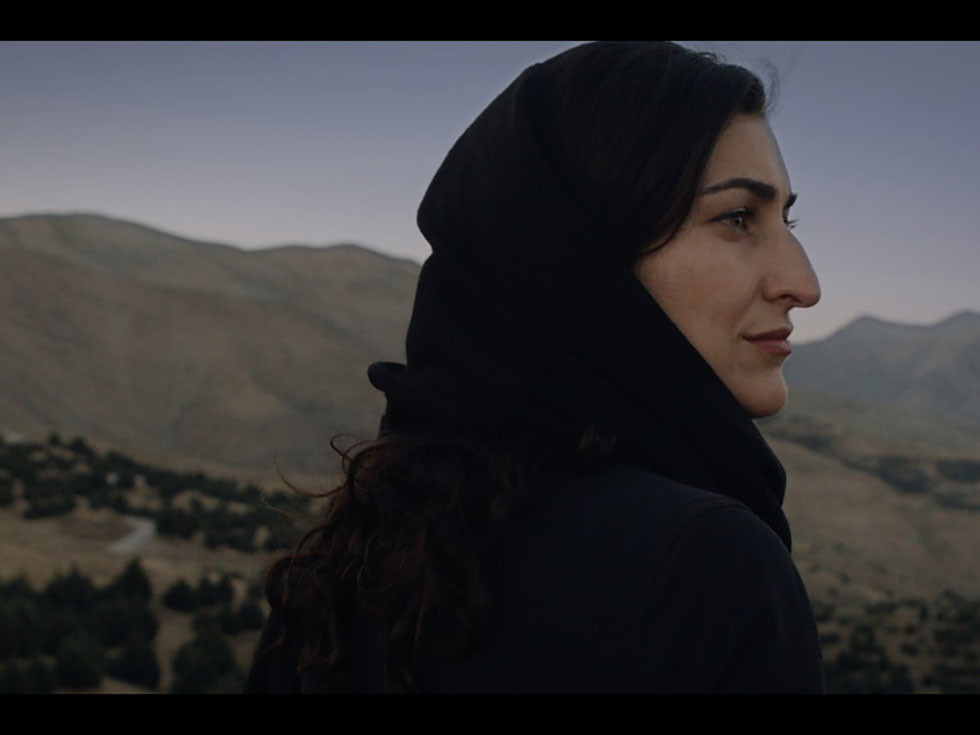
Jawad Rhalib, When Arabs Danced (film still), 2018 © Jawad Rhalib
The Film Club autumn 2019
The Film Club 2019 autumn programme
Friday 6 September, at 18
Dreams are Colder than Death + introduction + Q&A
Film: ”Dreams are Colder than Death” (2013) bu Arthur Jafa, 53 min.
Introduction: Anna Tellgren, curator of photography and curator of the exhibition ”Arthur Jafa”, gives an introduction to the film that is shown in connection with the final weekend of the exhibition. Kristoffer Svenberg, art pedagogue and artist participates in the in the Q&A after the screening.
Friday 4 October, at 18
When Arabs danced + conversation
Film: ”When Arabs danced” (2018) by Jawad Rhalib, 85 min.
Conversation: The film will be followed by a discussion about Post Arab Spring Identity And Culture with Heba Habib, Journalist; Linda Mutawi, Film producer; and Ambassador Gufran Al Nadaf.
Friday 18 October, at 18
District 9 + conversation
Film: ”District 9” (2009) by Neill Blomkamp, 112 min.
Conversation: Ravi Govender from CUSS Group and Lars Bang Larsen, curator of the exhibition Mud Muses.
Friday 22 November, at 18
How Do You Talk About Three Hundred Years in Four Minutes –
an evening with Jeannette Ehlers
Film: ”How Do You Talk About Three Hundred Years in Four Minutes”, ”Whip it Good”, “Black Bullets,” and “Off The Pig,” as well as “Black Magic at the White House” and other short videos from the exhibition ”Atlantic” (2009–2014)
Conversation: Benjamin Gerdes, senior lecturer/substitute professor introduces and discusses with the artist.
Friday 29 November, at 18
Vídeo nas Aldeias + conversation
Film program selected by Ana Carvalho, collaborator and coordinator of projects, films and video workshops, and Vincent Carelli, founder of Vídeo nas Aldeias, Brazil: ”O Esperito da TV” (1990) by Vincent Carelli, 18 min. ”Bicicletas de Nhanderu” (2011) by Coletivo Mbya Guarani de Cinema, 48 min. ”Peixe Pequeno” (2010) by Vincent Carelli, 4min.
Conversation: Ana Carvalho and Lars Bang Larsen, curator of the exhibition Mud Muses.
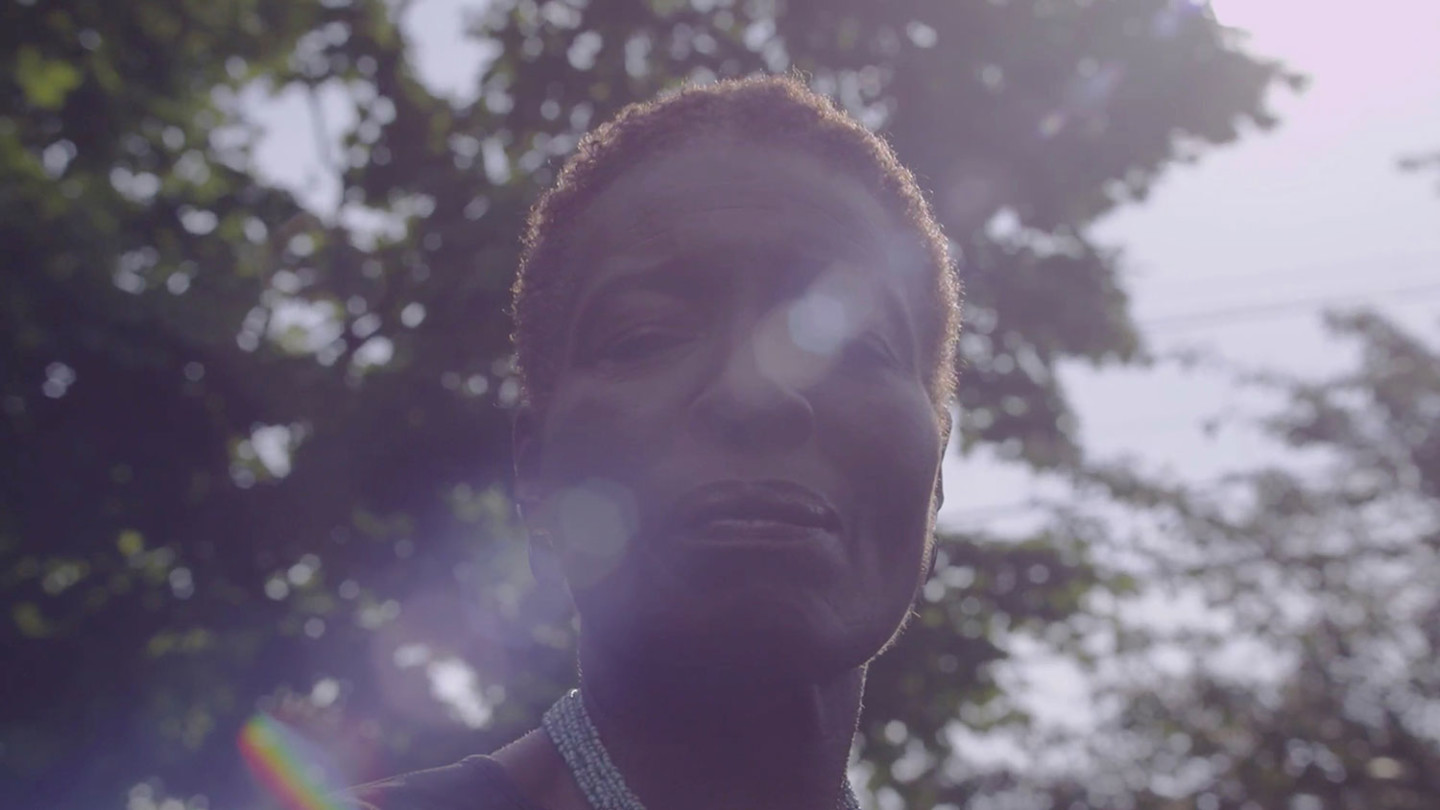
Date, time & ticket
Dreams are Colder than Death (2013)
Arthur Jafa
USA, 53 min
Date: Friday 6 September 2019
Time: at 18–19.30
Place: the Cinema, floor 2
Language: English
Price: free admission
Tickets: no booking required
In connection with the final weekend of the exhibition ”Arthur Jafa: A Series of Utterly Improbable, yet Extraordinary Renditions”, the Film Club presents Jafa’s film ”Dreams are Colder than Death” (2013). Anna Tellgren, Moderna Muset’s curator of photography and curator of the exhibition, gives an introduction to the film.
Kristoffer Svenberg, art pedagogue and artist participates in the in the Q&A after the screening.
The Film Bar (in the Coffee Bar, floor 4) is open before the film screening. Student prices on beer.
Dreams are Colder than Death (2013)
Arthur Jafa
USA, 53 min
Dreams are Colder than Death is an experimental documentary/essay film that leverages a reflection on the legacy of Martin Luther King’s “I have a Dream” speech, to pose fundamental and pressing questions: what is the concept of blackness? Where did it come from? What does it mean for people of colour living in America today?
Woven together with lyrical slow motion images of ordinary black people mostly in outdoor spaces, pictures of water and cosmological images of deep space, the voices of some of the most powerful contemporary thinkers and artists in black studies and black arts engage in a meditation on the ontology of blackness and its relationship to life, death, and the concept of the human in the context of the “afterlife of slavery”.
Arthur Jafa
Arthur Jafa is an artist, director, and award-winning cinematographer whose work expands the concept of black cinema while exploring African American experiences and race relations in everyday life. He has stated, “I want to make black cinema with the power, beauty, and alienation of black music.” Arthur Jafa was born in 1960 in Tupelo, Mississippi, and lives in Los Angeles.
After his architecture studies, Jafa embarked on a career as a cinematographer. He has worked with Spike Lee on the film ”Crooklyn”, with Stanley Kubrick on ”Eyes Wide Shut”, and Julie Dash on ”Daughters of the Dust”, the first film directed by an African-American woman that got distribution over the entire USA. Jafa has also made music videos for Beyoncé, Solange, and Jay-Z. At the 2019 Venice Biennale, Arthur Jafa was awarded the Golden Lion for best artist in the central exhibition.
Read more on Arthur Jafa and the exhibition at Moderna Museet summer 2019: Arthur Jafa
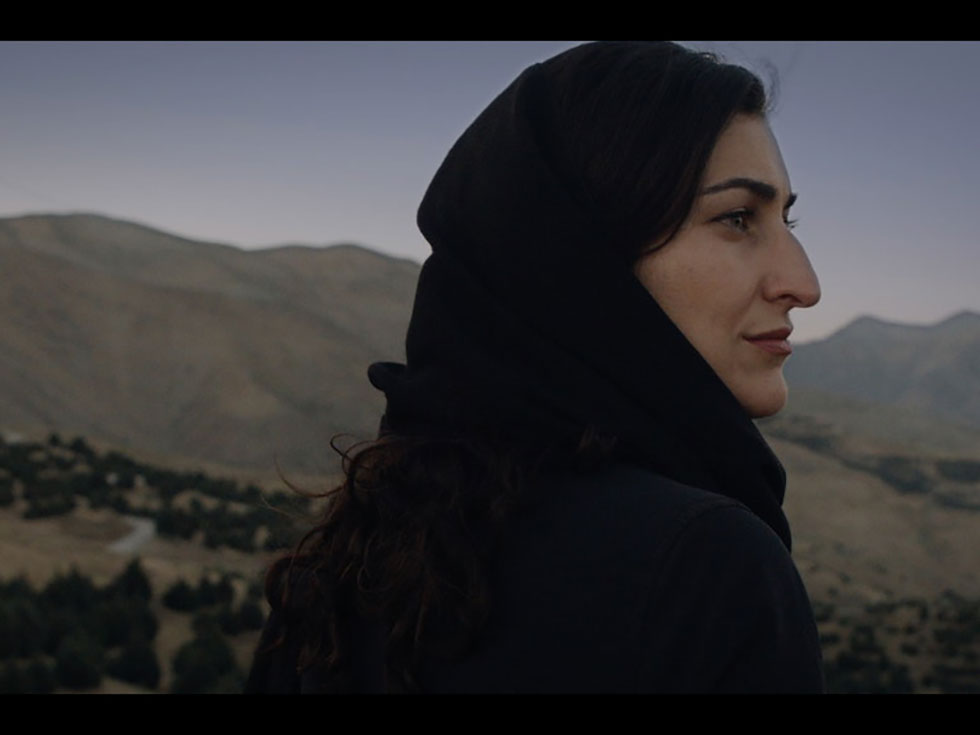
Date, time & ticket
When Arabs danced (2018)
Jawad Rhalib
Egypt/Belgium, 85 min
Date: Friday 4 October 2019
Time: at 18–20
Place: the Cinema, floor 2
Language: Arabic, French and English with English subtitles.
Price: 120 kr
Tickets: buy ticket
The film will be followed by a discussion about Post Arab Spring Identity And Culture with Linda Mutawi and Gufran Al Nadaf. Heba Habib will moderate. She is an Egyptian journalist and writer (Washington Post, Vice, films etc). She is based in Stockholm. Linda Mutawi is a producer who most recently produced Tarek Saleh’s last film, ”The Nile Hilton Incident”. Gufran Al Nadaf, Ambassador and Director of the Diplomatic Training Programme, at the Swedish Ministry for Foreign Affairs.
In collaboration with CinemAfrica.
THE FILM BAR is open before the film screening and the discussion. Student prices on beer.
When Arabs danced (2018)
Jawad Rhalib
Egypt/Belgium, 85 min
In the Arab world, a battle of cultures is constantly being fought. Conservative voices and newly saved Salafists, (Muslims who consider themselves the true practitioners of Islam) claim that traditions require patriarchy, censorship and denouncing non-religious culture. However, this version of society has never been realised – other voices have always resisted, created groundbreaking art and culture, and orchestrated another, more radical definition of what it means to be an Arab and a Muslim. In the documentary, we will meet some of the individuals who continue to fight for the right to express themselves artistically and who are questioning the norms which are trying to counteract their pursuits.
Jawad Rhalib
The journalist and documentary filmmaker Jawad Rhalib incorporates archival images from some of the strongest Arabic cultural voices of the century with newly shot clips of their successors today, in conversations, during performances and repetitions. Human rights are Jawad Rhalid’s sphere of interest and in the documentary “When Arabs Danced” we meet dancers and actors in Egypt, Morocco, Iran, and Belgium who earnestly talk about the love of their art and about the difficulties of practicing it freely. Supported by the archival images Rhalid paints the picture of a rich tradition in the performing arts and a cultural history which is at risk of being lost forever.
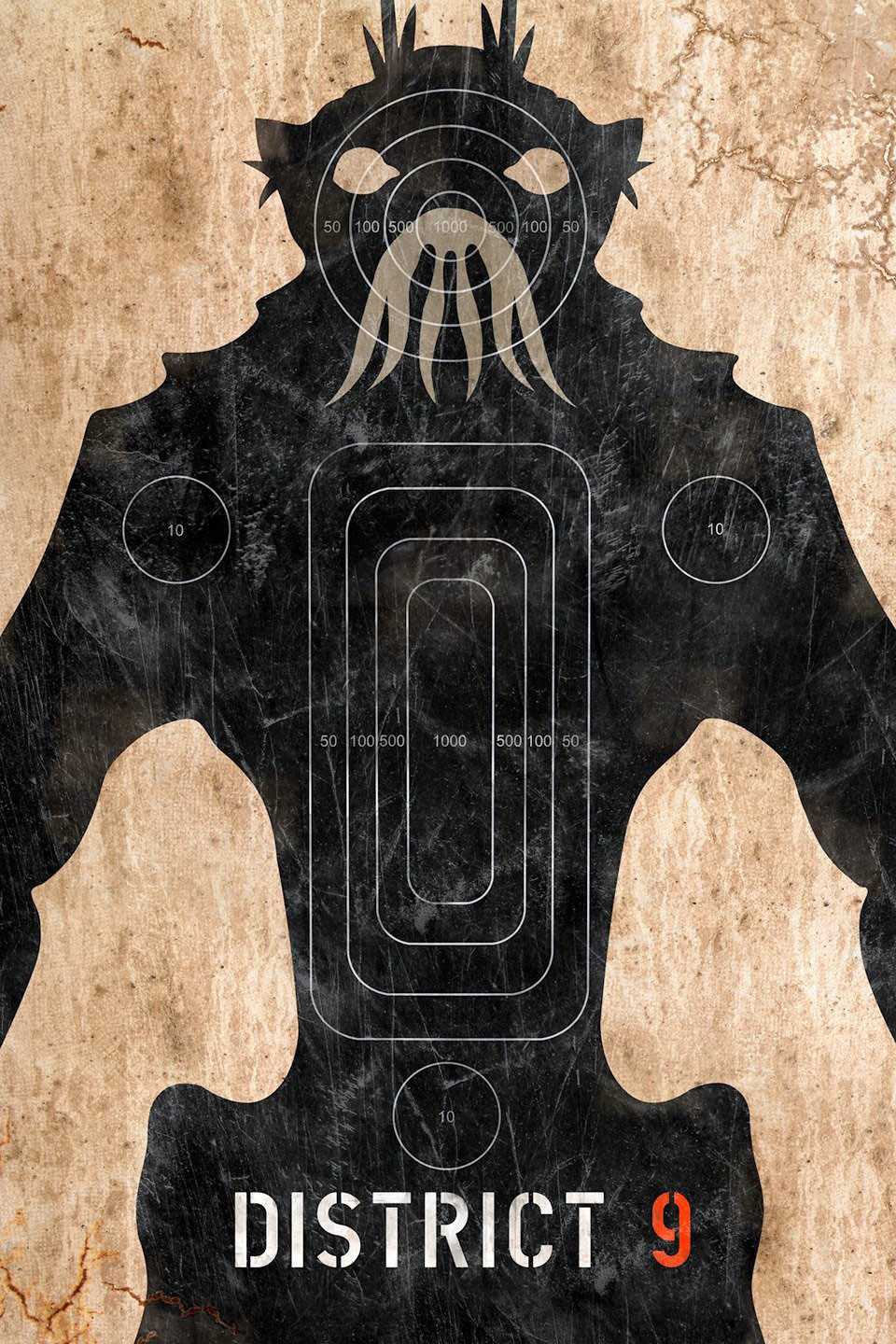
Date, time & ticket
District 9 (2009)
Neill Blomkamp
South Africa/Canada, 112 min
Date: Friday 18 October 2019
Time: at 18–20.30
Place: the Cinema, floor 2
Language: English, Swedish subtitles
Price: free admission
Tickets: no booking required
The Film club (Filmklubben) is screening ”District 9” on its ten years anniversary, and for its thematic overlap with CUSS Group’s installation in ”Mud Muses – A Rant About Technology”. Before the screening, Ravi Govender from CUSS Group will discuss with curator Lars Bang Larsen.
THE FILM BAR is open in conjunction to the film screening and the discussion. Student prices on beer.
District 9 (2009)
Neill Blomkamp
South Africa/Canada, 112 min
Neill Blomkamp’s film ”District 9” (2009) presents strange and dramatic events in an alternative recent past: an enormous spaceship that arrives and hovers above Johannesburg in 1982 turns out to contain a million starved aliens. They are subsequently housed in a camp and derogatorily referred to as ‘prawns’ by the humans. Twenty years after their arrival, a group of aliens try to make their spacecraft work again, but the South African government has other plans for the segregated visitors.
Blomkamp’s montage strategy of working with different styles of filming – including interviews, news footage, surveillance video – makes ”District 9” a blend of raw social commentary and trashy, genre-aware sci-fi that allegorizes (post-)Apartheid era South Africa.
Neill Blomkamp
Neill Blomkamp was born 1979 in Johannesburg, South Africa. He is film director, producer, screenwriter, and animator. Blomkamp employs a documentary-style, hand-held, cinéma vérité technique, blending naturalistic and photo-realistic computer-generated effects, and his films often deal with themes of xenophobia and social segregation. He is best known as the co-writer and director of the critically acclaimed science fiction action film ”District 9”. He is based in Vancouver, Canada.

Date, time & ticket
How Do You Talk About Three Hundred Years in Four Minutes –
An evening with Jeannette Ehlers
Date: Friday 22 November 2019
Time: at 18–20
Place: the Cinema, floor 2
Language: English
Price: free admission
Tickets: no booking required
Benjamin Gerdes, senior lecturer/substitute professor introduces and discusses with the artist Jeannette Ehlers.
The Moderna Bar is open the whole evening. Student prices on beer!
How Do You Talk About Three Hundred Years in Four Minutes (2009–2014)
A screening and discussion with Caribbean diaspora Danish artist Jeannette Ehlers. Ehlers will present a selection of short video works ranging from 2009-2014. These include “How Do You Talk About Three Hundred Years in Four Minutes”, “Whip it Good”, “Black Bullets”, and “Off The Pig”, as well as “Black Magic at the White House”, and other short videos from the exhibition Atlantic, where Ehlers traveled to former Danish territories in present-day Ghana and the West Indies.
“Based on my own Danish West Indian background, I examine and process themes related to the transatlantic slave trade that, despite the predominant collective repression, still play an important part in our society. My work is a personal taking history to task and a protest against the suppression of and often ignorant attitude towards these problems that I meet in this part of the world.” Jeannette Ehlers.
Jeannette Ehlers
Jeannette Ehlers is a video, photo and performance artist based in Copenhagen, Denmark. For years she has created artworks that delve into ethnicity and identity inspired by her own Danish and Caribbean background. Her pieces revolve around big questions and difficult issues, such as Denmark’s role as a slave nation—a part of the Danish cultural heritage, which often gets overlooked in the general historiography. She has exhibited and performed in such institutions as the Ford Foundation Gallery, NYC; ARoS, Aarhus, Denmark; the Museum of Latin American Art, Los Angeles; the International Slavery Museum, Liverpool; the McKenna Museum of African American Art, New Orleans; Nikolaj Contemporary Art Center, Copenhagen, Denmark; and, the Pérez Art Museum, Miami.
She recently worked together with Virgin Islands artist La Vaughn Belle on the project ”I Am Queen Mary”, a large-scale public sculpture of the historical figure Queen Mary – a woman from St. Croix who among the leaders of the infamous “Fireburn” labor uprising on that island. This sculpture, which was installed directly in front of the West Indian Warehouse in Copenhagen, has received much international press coverage since its unveiling in March 2018, including articles in the BBC World News, New York Times, and Le Monde.
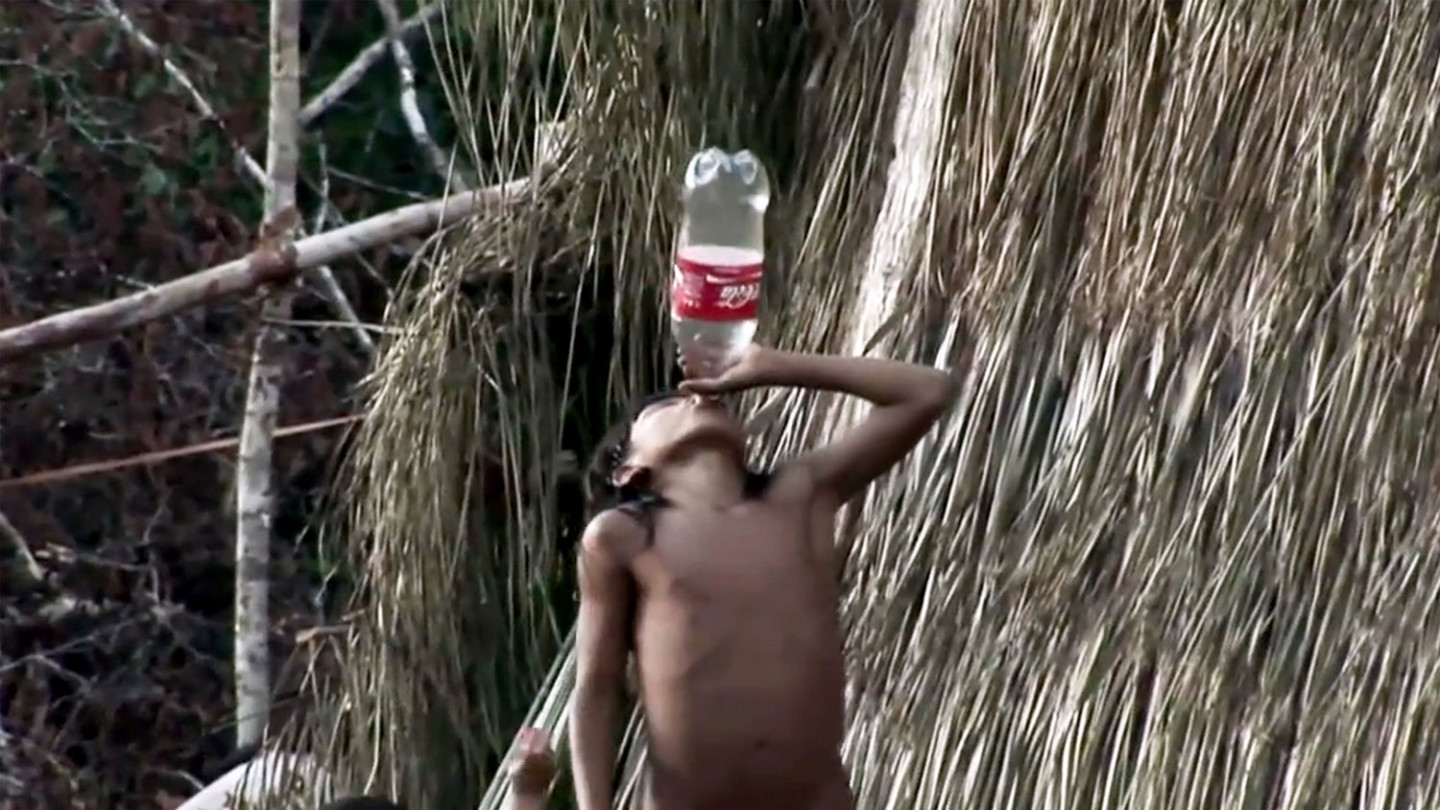
Date, time & ticket
Vídeo nas Aldeias – ‘video in the village’
Date: Friday 29 November 2019
Time: at 18–20
Place: the Cinema, floor 2
Language: Nambikwara and Guarani, English subtitles
Price: free admission
Tickets: no booking required
Film program selected by Ana Carvalho, collaborator and coordinator of projects, films and video workshops, and Vincent Carelli, founder of Vídeo nas Aldeias, Brazil:
”O Esperito da TV” (1990) by Vincent Carelli, 18 min.
”Bicicletas de Nhanderu” (2011) by Coletivo Mbya Guarani de Cinema, 48 min.
”Peixe Pequeno” (2010) by Vincent Carelli, 4min.
For this screening, Ana Carvalho comments a selection of works from the project’s archives.
The screening is made in conjunction to the exhibition Mud Muses. and will be followed by a discussion with Ana Carvalho and Lars Bang Larsen, curator.
THE FILM BAR: After the screening the Moderna Bar is open. Please join us there, you can buy drinks and Brasilian food and snacks, and student price on beer. Welcome!
Vídeo nas Aldeias
Vídeo nas Aldeias – ‘video in the village’ – created in 1986, is one of the longest-running and most respected projects in Brazil focusing on cultural empowerment. By distributing video and related technologies, and by training filmmakers and producing and disseminating films, Vídeo nas Aldeias encourages Indigenous people in Brazil to define and create their own mode of image production – whether fiction, documentary, or something else. By fostering First Nation filmmakers that focus their gaze on the own communities and their surroundings, the project proposes other communication networks between indigenous peoples and contributes to building indigenous history on its own terms, beyond an anthropological representation.
O Espirito da TV – The Spirit of TV
Beginning with the arrival by canoe of a TV and VCR in their village, ”The Spirit of TV” documents the emotions and thoughts of the Waiãpi as they first encounter their own TV images and those of others. They view a tape from their chief’s first trip to Brasilia to speak to the government, news broadcasts, and videos on other Brazilian native peoples. The tape translates the opinions of individual Waiãpi on the power of images, the diversity of native peoples, and native peoples’ common struggles with federal agents, goldminers, trappers and loggers.
The Film Club
Film has had a prominent position at the Museum since the start. The Moderna Museet Film Club has existed since the Museum opened in 1958, showing everything from children’s matinees to the latest experimental art films.
The Film Club resurrected in 2018 and presents films on the boundary between art and documentary. Often, the artist or director will take part in discussions after the screenings. The 2019 autumn programme is compiled in collaboration with the Royal Institute of Art and CinemAfrica.
Previous programme
The Film Club editorial team
Lena Essling, curator and Catrin Lundqvist, curator
Contact
The spring programme was compiled in collaboration with the Royal Institute of Art and CinemAfrica.

